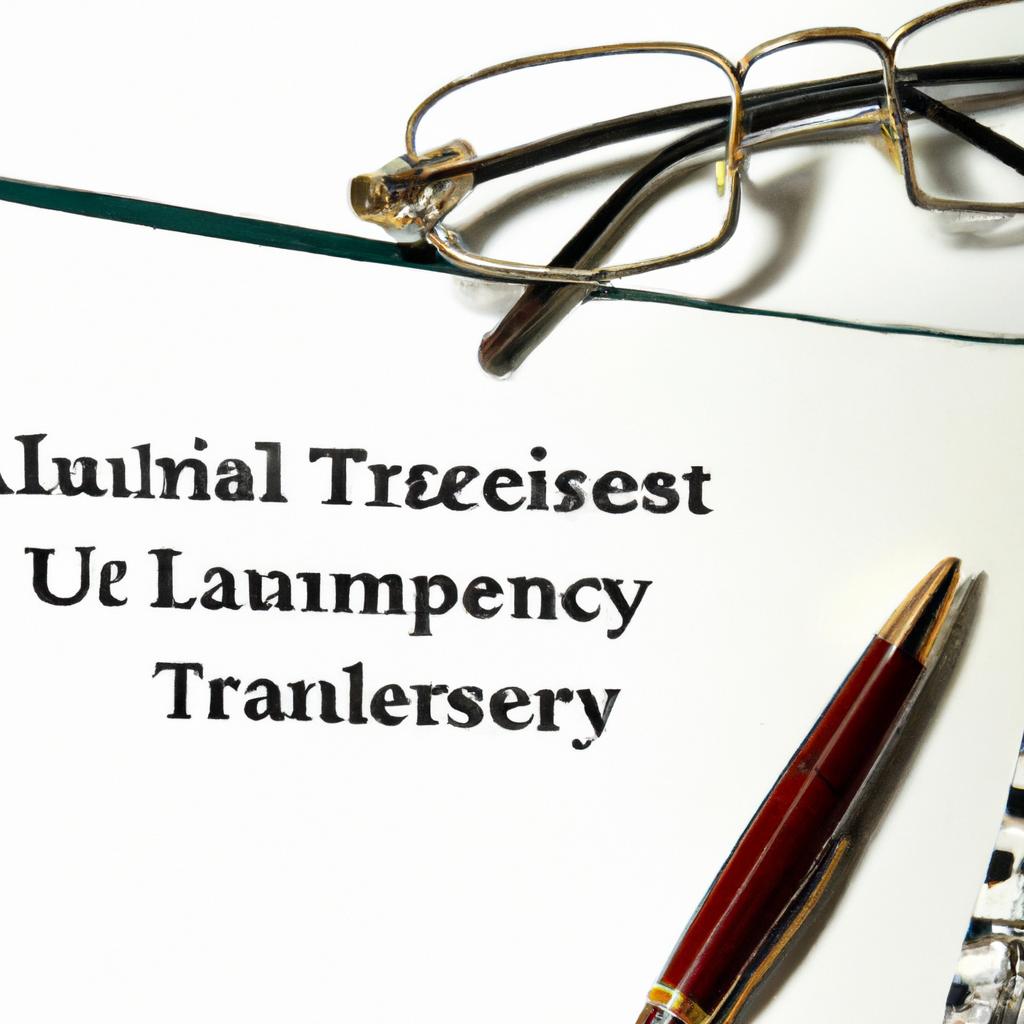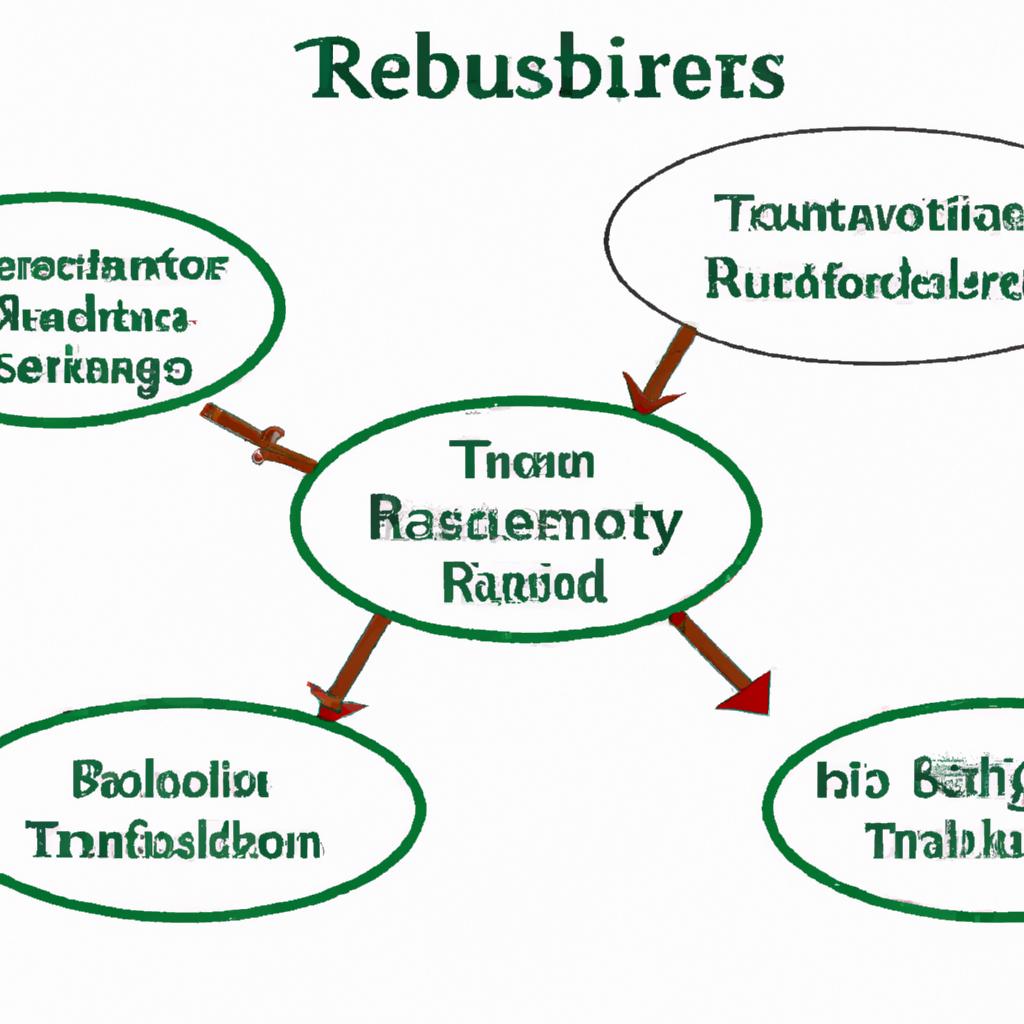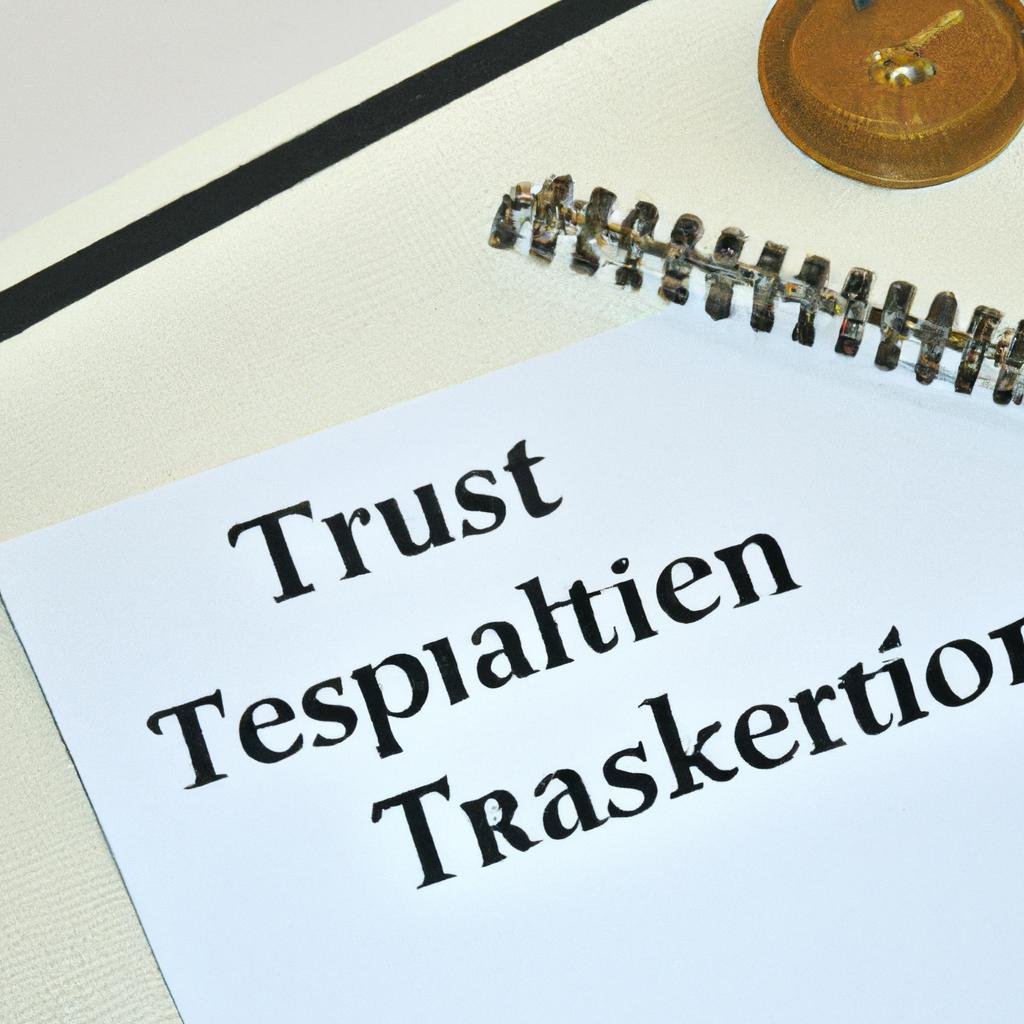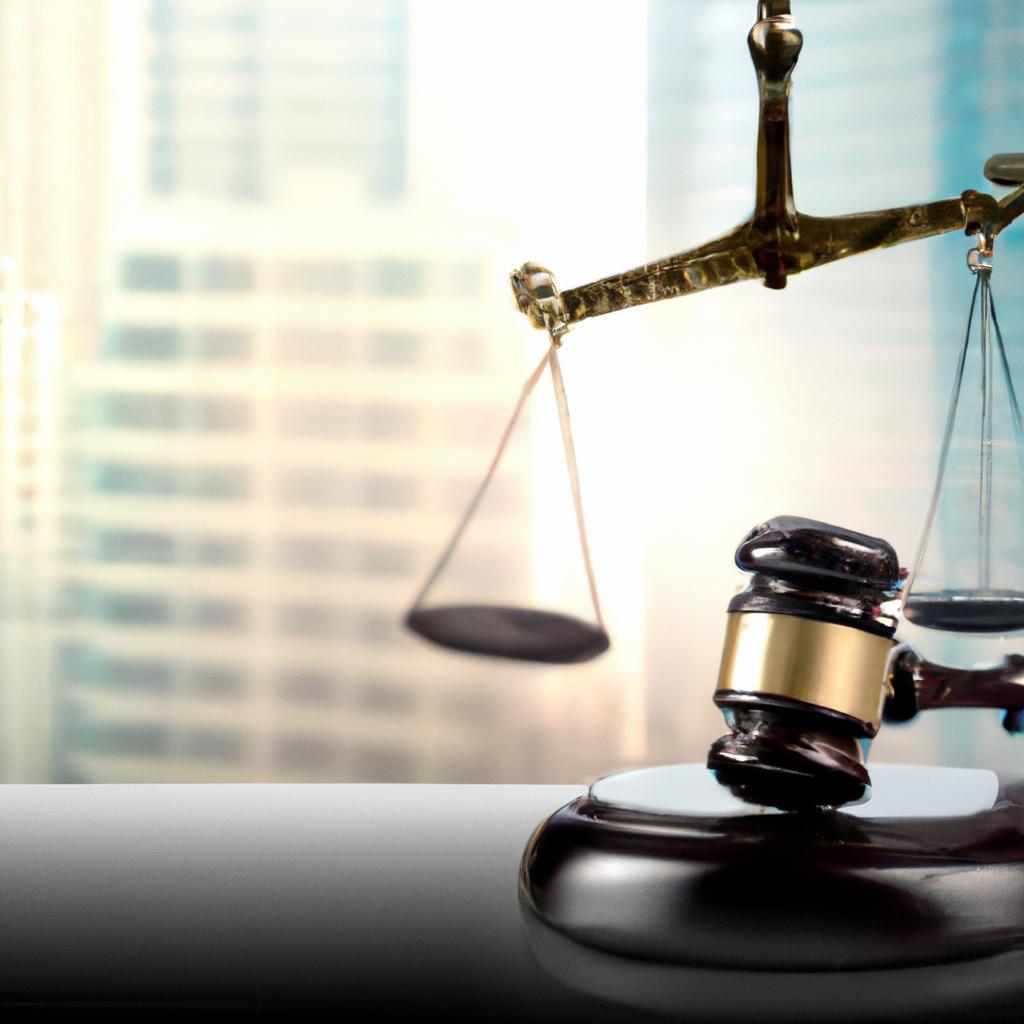When establishing a trust, it is imperative to understand the complex and intricate requirements that govern such a legal entity. From the selection of trustees to the drafting of the trust agreement, each step in the process plays a crucial role in ensuring the proper administration and execution of the trust. At Morgan Legal Group, we specialize in guiding our clients through the intricate web of trust requirements to create comprehensive and effective estate planning solutions. Join us as we delve into the essential elements and obligations that define the requirements of a trust.
Understanding the Legal Framework of Trusts
When setting up a trust, there are specific requirements that must be met to ensure its validity and effectiveness in achieving your intended goals. Understanding these essential elements is crucial in navigating the legal framework of trusts:
- Trustee: A trust must have a trustee who is responsible for managing the trust assets and carrying out the terms of the trust.
- Beneficiary: A trust must have one or more beneficiaries who will benefit from the trust assets according to the trust terms.
- Trust Property: A trust must have property or assets that are placed into the trust by the settlor to be managed and distributed by the trustee.
| Trustee | Manages trust assets |
| Beneficiary | Receives benefits from the trust |
| Trust Property | Assets placed into the trust |
These essential elements must be clearly defined in the trust document, which outlines the terms and conditions of the trust, the rights and responsibilities of the trustee and beneficiaries, and the distribution of trust assets. By ensuring that these requirements are met, you can create a trust that provides the protection and benefits you desire for yourself and your loved ones.

Key Components of a Valid Trust Agreement
When creating a valid trust agreement, there are several key components that must be included to ensure its legality and efficacy. These components are essential for establishing a clear and enforceable trust that accurately reflects the intentions of the grantor. Without these key elements, the trust agreement may be deemed invalid or unenforceable in a court of law.
Some of the include:
- Trust property: The trust agreement must clearly identify the property or assets that are being placed into the trust. This ensures that the trust has a specific purpose and that the trustee knows what assets they are responsible for managing.
- Trustee: A trustworthy and competent trustee must be appointed to manage the trust and carry out the wishes of the grantor. The trustee has a fiduciary duty to act in the best interests of the beneficiaries and must adhere to the terms of the trust agreement.
- Beneficiaries: The trust agreement must clearly identify the beneficiaries who will benefit from the trust assets. This ensures that the trustee knows who the trust assets are ultimately intended for and that the beneficiaries have a legal right to the trust assets.

Roles and Responsibilities of Trustee and Beneficiaries
As a trustee, it is essential to understand and fulfill your duties with the utmost care and diligence. Your primary role is to manage and administer the trust in accordance with the trust instrument and the law. This includes acting in the best interest of the beneficiaries and handling the trust assets responsibly. Communication with beneficiaries is also crucial, as you are responsible for keeping them informed about the trust’s status and any important decisions.
On the other hand, beneficiaries have the right to certain information about the trust and its administration. They are entitled to receive regular accountings and updates on the trust’s assets and distributions. Additionally, beneficiaries have the right to enforce the terms of the trust and hold the trustee accountable for any breaches of fiduciary duty. It is important for both trustees and beneficiaries to understand their respective roles and responsibilities to ensure a smooth and successful trust administration.

Ensuring Compliance with State Regulations on Trusts
When establishing a trust, it is essential to ensure compliance with state regulations to avoid any legal issues in the future. The requirements of a trust may vary depending on the state in which it is created, but there are some common elements that must be included in every trust document:
- Trustee: A trust must have a designated trustee who will manage the assets held in the trust for the benefit of the beneficiaries.
- Beneficiaries: The trust document must clearly identify the beneficiaries who will receive the trust assets.
- Trust Property: The trust must have property or assets that are transferred into the trust by the settlor.
- Purpose: The trust document should specify the purpose of the trust and the intentions of the settlor in creating the trust.
In addition to these basic requirements, it is important to comply with any specific state regulations that may apply to trusts. For example, some states may have specific rules regarding the duration of a trust, the types of assets that can be held in a trust, or the formalities required for creating a trust. By working with an experienced estate planning attorney, you can ensure that your trust meets all legal requirements and will be upheld in court if necessary.
Q&A
Q: What exactly is a trust and why would someone need one?
A: A trust is a legal arrangement where a trustee holds assets on behalf of beneficiaries. It can be used for asset protection, estate planning, and privacy.
Q: What are the key requirements for creating a trust?
A: The key requirements for creating a trust include a settlor who creates the trust, a trustee who manages the assets, and beneficiaries who receive the assets. Additionally, there must be a valid trust document outlining the terms and conditions of the trust.
Q: Are there specific assets that can be placed in a trust?
A: Most types of assets can be placed in a trust, including real estate, investments, bank accounts, and personal property. However, certain assets like retirement accounts may have specific rules governing their transfer to a trust.
Q: Can anyone create a trust or are there specific qualifications?
A: Generally, anyone over the age of 18 with the mental capacity to understand the terms of the trust can create a trust. However, some states may have additional requirements such as a minimum age or residency.
Q: How long does a trust typically last?
A: A trust can last for a specific period of time, such as until a beneficiary reaches a certain age, or it can last indefinitely. Ultimately, the duration of a trust is determined by the terms set forth in the trust document.
Q: What happens if the trustee is no longer able to fulfill their duties?
A: In the event that a trustee is no longer able to fulfill their duties, a successor trustee can be named in the trust document to take over management of the trust assets. If no successor trustee is named, the court may appoint a new trustee.
Future Outlook
In conclusion, understanding the requirements of a trust is essential for anyone looking to establish one for their assets. By ensuring that all legal and procedural obligations are met, you can protect your assets and loved ones for years to come. Whether you are setting up a trust for estate planning purposes or for charitable giving, being aware of the necessary steps will help you navigate the process smoothly. Remember, a well-structured trust can provide peace of mind and ensure your wishes are carried out according to your intentions. So, take the time to familiarize yourself with the requirements of a trust and seek professional advice if needed to ensure your trust is set up correctly. Thank you for reading!
 What Are the Requirements of a Trust: A Comprehensive Guide
What Are the Requirements of a Trust: A Comprehensive Guide
A trust is a legal agreement between a trustor (also known as a settlor or grantor), a trustee, and a beneficiary. It allows the trustor to transfer assets to the trustee to manage and distribute to the beneficiary according to the terms outlined in the trust agreement. Trusts can serve various purposes, including asset protection, estate planning, and charitable giving. However, regardless of the purpose, there are certain requirements that must be met for a trust to be valid and effective. In this article, we will discuss the essential requirements of a trust and how they can affect the functioning of a trust.
Understanding the Three Parties Involved in a Trust
Before delving into the requirements of a trust, it is essential to understand the three parties involved in a trust.
- Trustor (Settlor/Grantor)
The trustor is the person who creates the trust and transfers their assets into the trust. They are typically the original owner of the assets and are responsible for establishing the trust and dictating its terms.
- Trustee
The trustee is the person or institution responsible for managing and distributing the trust assets according to the terms set by the trustor. They have a fiduciary duty to act in the best interest of the beneficiary and must adhere to the trust’s provisions.
- Beneficiary
The beneficiary is the person or institution who will receive the trust’s assets according to the terms outlined in the trust agreement. They can be an individual, organization, or even a charity.
Now that we have a basic understanding of the parties involved let’s explore the requirements of a trust that must be met for it to be legally valid and enforceable.
- Intention to Create a Trust
The first and most crucial requirement of a trust is the trustor’s intention to create a trust. This intention must be clearly stated and documented in the trust agreement. The trustor must also have the mental capacity to understand the terms of the trust and the consequences of creating it. Without a clear intention to create a trust, the agreement will not stand in court.
- Trust Property
The second essential requirement is that the trustor must transfer property or assets into the trust. This property can be real estate, stocks, bonds, cash, or any other valuable assets. The trust property becomes legally owned by the trust and managed by the trustee, not the trustor.
- Trustee’s and Beneficiary’s Identification
Every trust must have at least one trustee and one beneficiary, although the same person can serve in both roles. The trustee’s and beneficiary’s identities must be clearly stated in the trust agreement for it to be valid. In some jurisdictions, the identity of the trustee and beneficiary must also be registered with the court.
- Specific and Identifiable Terms
For a trust to be enforceable, the trust agreement must contain specific and identifiable terms. This includes the details of the trust property, the beneficiaries, and the trustee’s duties and responsibilities. This is essential to avoid any confusion or misunderstandings in the future.
- Legal Purpose
The purpose of creating a trust must be legal. Trusts created for illegal purposes will not be recognized by the courts. This means that the trustor cannot use the trust to evade taxes or hide assets from creditors, among other unlawful purposes.
- Delivery and Acceptance of the Trust Property
Once the trustor has transferred the trust property to the trustee, there must be a formal delivery and acceptance of the property. This is typically in the form of a written document, which both parties must sign. This step is necessary to establish the trustor’s intention to transfer the property to the trust and the trustee’s acceptance of managing it.
- Compliance with the Applicable Laws
Trusts are subject to specific laws and regulations depending on the jurisdiction in which they are established. These laws may vary in different states and countries. Therefore, it is crucial to ensure that the trust complies with the applicable laws to avoid any potential legal issues in the future.
Consequences of Not Meeting the Requirements of a Trust
Not meeting the requirements of a trust can have significant consequences. If any of the key elements are missing or improperly established, the trust may be deemed invalid and unenforceable in court. This means that the trustor’s assets will not be protected or distributed according to their wishes. The assets will then be distributed according to the state’s intestacy laws, which may not align with the trustor’s wishes.
Tips for Creating a Trust with Ease
- Seek Professional Advice
Creating a trust is a complex process that involves various legal and financial considerations. Therefore, it is essential to seek professional advice from a lawyer or an estate planning expert to ensure that all requirements are met. They can also advise on the best trust structure for your individual needs.
- Create a Well-Documented Trust Agreement
A clear and concise trust agreement is vital in establishing the terms and conditions of the trust and avoiding any potential disputes in the future. Be sure to consult an attorney to create a well-drafted and legally binding trust agreement.
- Review and Update Your Trust Regularly
Life circumstances can change, and it is vital to review and update your trust regularly to reflect these changes. This can include marriage, divorce, birth of a child, or acquiring new assets. Neglecting to review and update your trust can render it ineffective and lead to unintended consequences for your beneficiaries.
In Conclusion
Establishing a trust involves several essential requirements that must be met for it to be legally valid and effective. It is crucial to seek professional advice and draft a well-documented trust agreement to ensure that your assets are managed and distributed according to your wishes. Remember to review and update your trust regularly to reflect any changes in your life circumstances.

